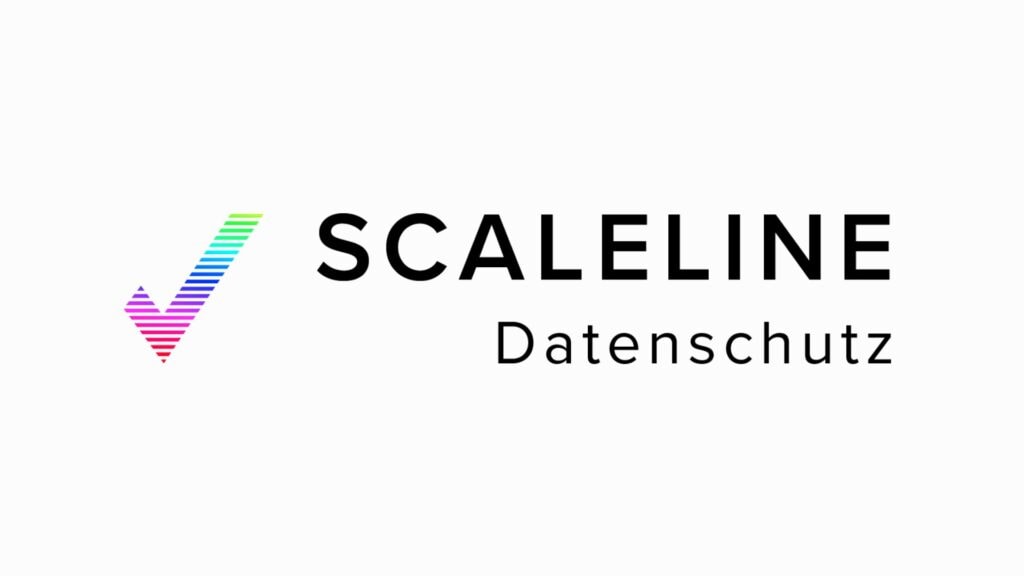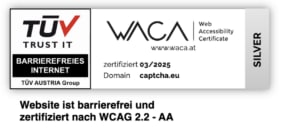
Want to learn more about captcha and privacy? In this blog post, we will answer all your questions! We’ll explain why a captcha is so important for protecting your data and how best to use it. Let’s learn all about captcha and privacy together!
What is Captcha?
Captcha is a term that many internet users are probably familiar with. It is a technology that is used to distinguish human from automated actions. The best-known example is probably the distorted letter and number combinations that you have to enter when logging in to various websites. Captcha is supposed to prevent spambots from automatically filling out forms or performing unwanted actions. But what about the privacy of Captcha? In our blog article, we get to the bottom of these and other questions about Captcha.
How does Captcha work?
Captcha is a security mechanism that aims to ensure that the interaction between a user and a website originates from a human user. The acronym stands for “Completely Automated Public Turing test to tell Computers and Humans Apart” and is a type of challenge-response test. Captchas can take various forms, such as solving math problems or identifying images. The idea is that these tasks are easy for humans, but difficult for computers to solve. Captchas are an important part of data protection on the Internet and help prevent spam and automated attacks on websites.
What are the different types of captcha?
There are several types of captcha that are used to ensure that a person, and not a computer, performs a certain operation. One of the most popular types is the “Text Captcha”, which requires the user to enter a series of distorted letters or numbers that are displayed on an image.
Another type is the “image captcha”, where the user must identify and select specific objects on an image. There is also reCAPTCHA, which was developed by Google and involves several steps to ensure that the user is human. These different types of captcha are all designed to prevent bots from performing unwanted actions on websites while ensuring user security and privacy. However, there are concerns about the use of Google’s reCAPTCHA in particular from a privacy perspective. Some time ago, the French data protection supervisory authority CNIL decided that user consent is required for the use of Google reCAPTCHA. The background to this is, on the one hand, the transfer of personal data to the USA. The Bavarian State Office for Data Protection Supervision also expressed the same opinion. It is therefore necessary for website operators to look around for alternatives. Before we explore these in more detail, let’s address some more points about Captcha in advance.
Why is Captcha used?
Captcha is a commonly used technology designed to increase website security and prevent bots from accessing sensitive data. It is used to prevent or limit spam attacks on websites in particular. It is important to note that captcha not only helps secure websites, but also improves the user experience, as it helps reduce abuse of pages by bots and unwanted users.
What are the advantages and disadvantages of Captcha in terms of privacy?
In terms of privacy, there are both advantages and disadvantages to using Captcha. On the one hand, Captcha protects users from automated attacks and spam, which in turn increases data security. On the other hand, Captcha often requires the collection of personal data such as IP addresses, browser information, form data or usage behavior in order to successfully identify the user. However, this can pose a risk to data privacy if this data falls into the wrong hands or is used for other purposes.
It is therefore important that companies and website operators carefully consider which captcha solutions they use and how they protect the data collected.
How can you ensure that the captcha you use is privacy compliant?
To ensure that the captcha used is privacy compliant, a few aspects should be considered. First, the captcha system should be designed in such a way that no personal data is collected. One possibility is to use Captcha.eu – the DSGVO-compliant bot and spam protection from Austria, which does not require the entry of user data, cookies and tracking.
Furthermore, the captcha system should be transparent and provide users with clear information about what data is collected and how it is used. It is also advisable to regularly review the privacy policy of the captcha provider used and to include a privacy notice on the website. These measures can ensure that the captcha used is privacy-compliant and that the privacy of users is protected.
How can companies ensure the protection of their users’ data when using Captcha?
To ensure the protection of their users’ data, companies should pay attention to certain aspects when using Captcha. First of all, the captcha system should ensure that users’ data is not used for purposes other than human identity verification.
It is also important that the system does not collect and store sensitive information such as passwords or credit card numbers. In addition, companies should ensure that the captcha system is regularly updated to eliminate potential vulnerabilities and improve security.
Conclusion: What is the importance of data protection in connection with the use of Captcha?
In conclusion, data protection is of great importance in connection with the use of Captcha. This is because by solving the tasks, data is not only collected about the users, but may also be passed on to third parties.
Therefore, when choosing the captcha, companies and website operators should make sure that it complies with the applicable data protection regulations and that no sensitive and personal data is collected. Otherwise, it is necessary to transparently inform users about the data collection and give them an opportunity to object to it. This way, a privacy-compliant use of captcha can be ensured.
About the authors:
Mag. Elisa Drescher is a lawyer, certified data protection officer and co-founder of SCALELINE, the digital consultancy for data protection law for Germany and Austria. With over 100 satisfied clients, no data protection problem is too big for SCALELINE.
- Contact via email:

- Book directly a free initial consultation with SCALELINE
Manuel Rostorfer, MA is managing director of Captcha GmbH, the Austrian captcha solution Captcha.eu for companies of all sizes. A solution that does not use cookies as well as tracking and therefore complies with ePrivacy as well as DSGVO guidelines to protect your customers.
- Contact via email:

Want to connect with us?




